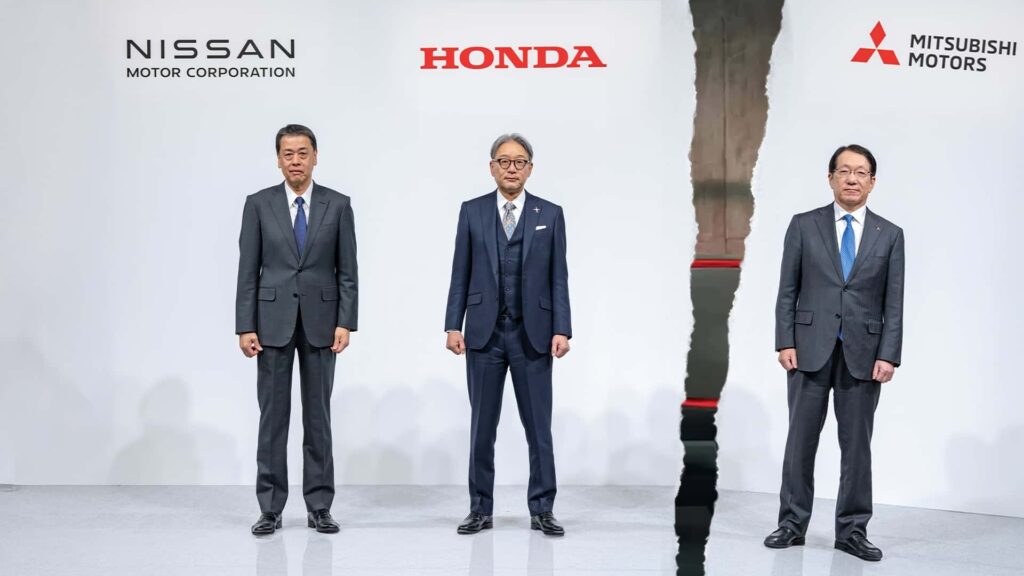In the realm of automotive partnerships, mergers and alliances are often the norm. However, the potential merger between Honda and Nissan is causing a stir, especially for Mitsubishi. The Japanese automaker, known for its low production output compared to its counterparts, is contemplating whether to join the Honda-Nissan partnership or go its own way.
Sources close to the matter revealed to Reuters that Mitsubishi is hesitant about being part of the potential merger. The company values its existing relationships with both Honda and Nissan, particularly in the realm of electric vehicle (EV) development. However, Mitsubishi is concerned that its voice may be overshadowed in a company dominated by Honda and Nissan.
With Honda producing 4.19 million vehicles in 2023 and Nissan following closely behind with 3.44 million, Mitsubishi’s production output of just over 1 million vehicles pales in comparison. Despite Nissan being its largest shareholder, Mitsubishi recently bought back a significant amount of its stock, reducing Nissan’s stake in the company from 34% to 24%.
The decision on whether Mitsubishi will join the merger is expected to be made by the end of January. The company has yet to confirm its participation officially, stating that it is exploring various options and that rumors of its involvement in the merger are not based on verified information.
The potential merger between Honda and Nissan already raises questions about its purpose and necessity. Including Mitsubishi in the mix seems more like a courtesy, given the brand’s existing partnerships with both automakers. If Mitsubishi chooses to remain independent, it is likely to continue its technology-sharing agreements with Honda and Nissan, as well as Nissan and Renault, while focusing on niche markets like Southeast Asia.
On the other hand, if Mitsubishi decides to join forces with Honda and Nissan, it could potentially experience a resurgence in the U.S. market reminiscent of its Diamond-Star Motors era. The outcome of Mitsubishi’s decision will not only impact its future trajectory but also the dynamics of the automotive industry as a whole.
In conclusion, Mitsubishi’s potential divergence from the Honda-Nissan merger highlights the complexities and considerations involved in automotive partnerships. Whether the company chooses to stand alone or align with its counterparts, the decision will shape its path in the evolving landscape of the automotive industry.

